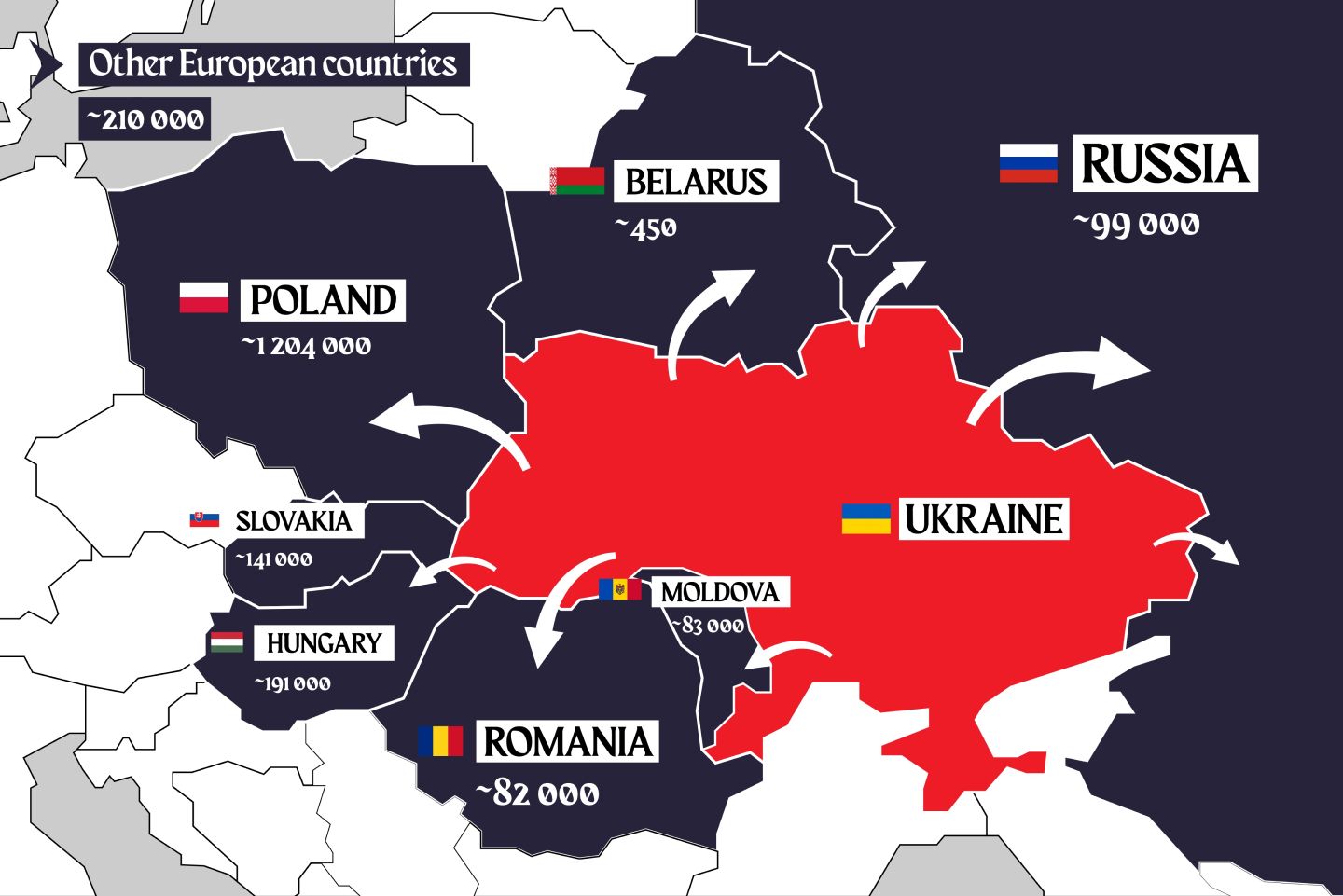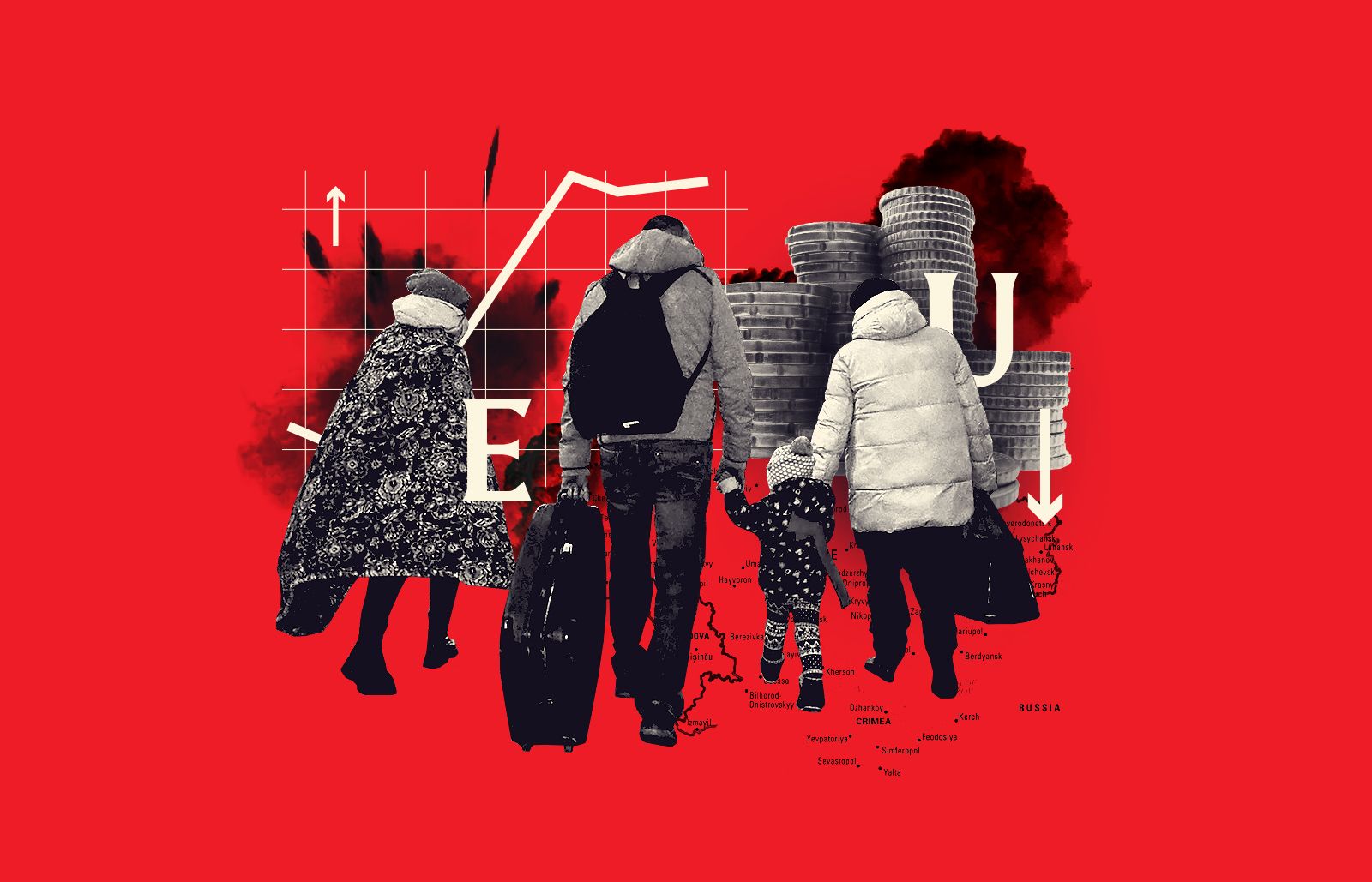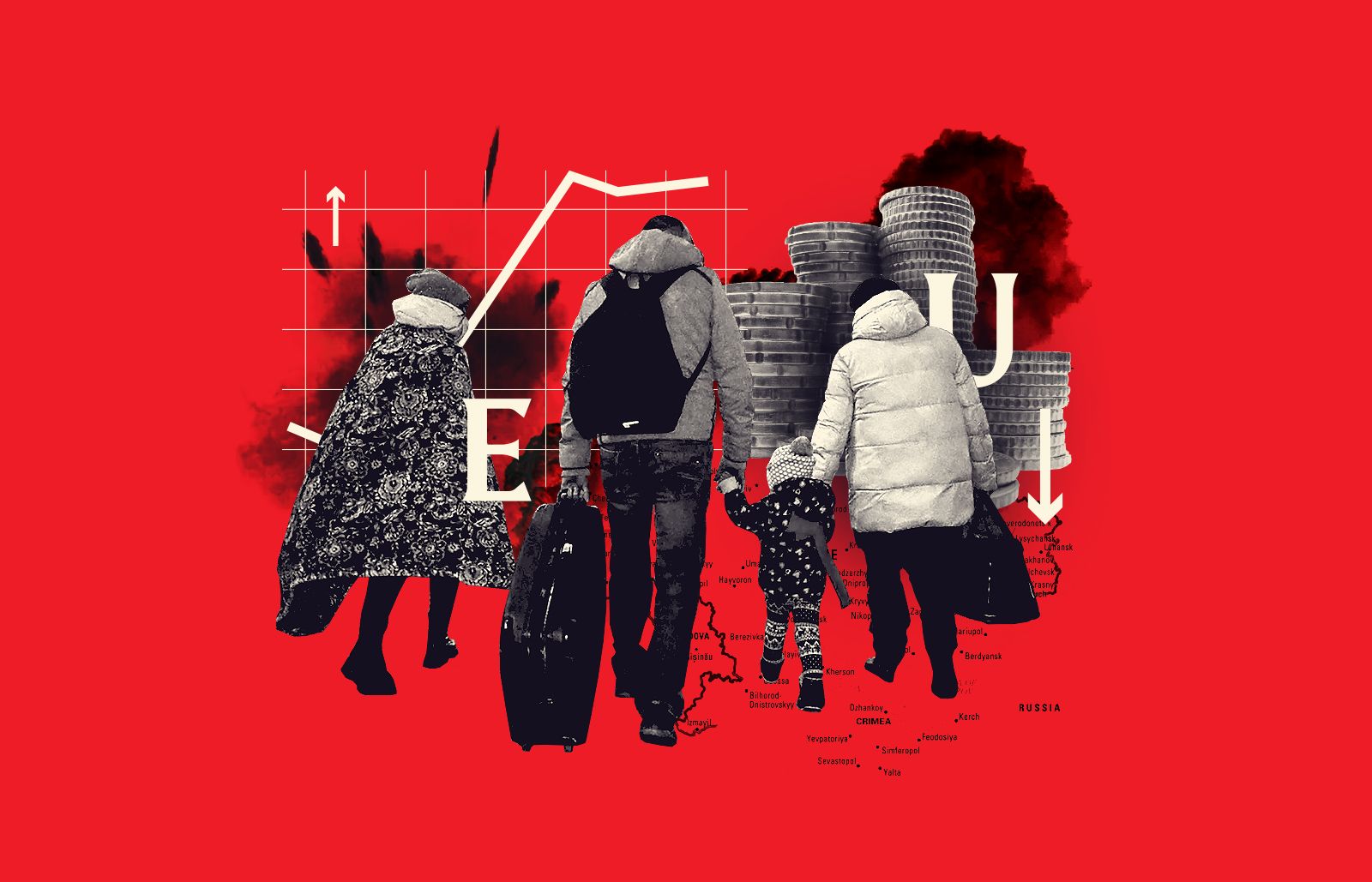The war in Ukraine has already forced more than 1.5 million people to flee their country, a number that the UN estimates could reach 5 million in the near future. While the majority are seeking refuge in neighboring Poland, Hungary has also become a major host country during the Russian-Ukrainian war. It is interesting to examine how the people of different countries, especially Hungary, perceive migration and how they will be affected by this new situation. On these and also on the migration policies of the Visegrad countries, we asked Szabolcs Janik, Operations Director at the Migration Research Institute, Hungary.
What are and could be the consequences of the Russian-Ukrainian war on migration?
The situation is extremely worrying. According to Friday’s data, more than 1.5 million people have fled to neighboring countries. Most of them, 1.2 million have sought refuge in Poland, but a very large number, around 191,000, have also arrived in Hungary. All countries concerned have so far done an exemplary job in providing the best possible conditions for those arriving. According to the UN’s grim forecast, up to 5 million people could leave Ukraine as a result of the war, while the number of so-called internally displaced persons could exceed 4 million. The reason for the high numbers is the intensity and geographical extent of the fighting. Unfortunately, as long as no ceasefire is agreed between the parties, the statistics are likely to rise at the current rate.

Could you give us a general picture on migration, with regard to Hungary in particular?
Migration is a phenomenon that exerts its impact through many different channels. And it can be analyzed from three different perspectives: that of the countries of origin and destination, and of the migrants themselves. And, of course, in addition to immigration, the emigration of the indigenous community may also be important for a given country, as well as whether it serves as a transit country. But to add a twist to the story, we also need to distinguish between legal and illegal migration. All things considered, each actor may face different benefits and costs, often at the expense of the other. To give you a concrete example: if the greatest minds in a developing African state leave to continue their lives in a developed Western state, it will be a serious blow and loss for the country of origin, while the host country clearly benefits economically. And the migrant will experience a higher standard of living, so all other factors, such as homesickness, difficulties of cultural integration set aside, the person in question is also a winner. Of course, these are very difficult to put a figure on, and this is only part of the story. Hungary is at the same time a country of destination, origin, and transit. Let’s take a look at each aspect. It is a destination country, as tens of thousands of people arrive every year to work or study legally or for family reunification. They typically come from other EU Member States, non-EU European countries and the developing world. There are also many Hungarians from across the border who come as naturalized citizens or foreign nationals. We are also a country of origin, as evidenced by the fact that a Hungarian diaspora of around 700,000 has built up worldwide over the past decades. In fact, according to the Hungarian Central Statistical Office’s data, in 2018 almost as many Hungarians emigrated back as had left; in 2019 and 2020, they outnumbered them. Hungary is also an important transit country for illegal migration: last year, the Hungarian authorities took action at the southern border in more than 120,000 cases. In Serbia, around 5 to 10,000 people have been stranded, desperate to reach Western Europe. This migratory pressure, although not comparable to 2015, is still significant.
What is the general perception of migration in Hungary?
There are several surveys available to assess this. Illegal migration, which is at the center of the political debate, is considered by the majority clearly as a risk, primarily a security risk. This is perfectly understandable and reasonable, as we do not know the background of those arriving. Hungarians by the way are quite convinced that this is economic immigration and not the arrival of refugees. Legal immigration and immigrants are totally accepted by society, many people would indeed help the actual refugees, as is now being demonstrated in the case of the refugees from Ukraine. I personally do not know of any research data on the perception of emigration, but it is probably not far from the truth to say that the majority would prefer to keep young people at home, or at least have them return after gaining experience abroad. By the way, as one of the four freedoms of the EU, freedom of movement and employment are one of the most important achievements of the integration—even if there is fierce competition for qualified workers between the Member States.

Why is there such a sharp difference between the approach to migration of the Visegrad countries (V4) and that of the Western Member States?
Since the mid-20th century, Western Europe has seen a major influx of economic immigrants. This is easily traceable, and it has essentially been the migration of people from the so-called MENA region for decades. Many also arrived as refugees in northern and western European societies. Since the 1990s, and especially after the turn of the millennium, globalization has fueled immigration to this region. The various armed conflicts and economic underdevelopment were all the more powerful push factors. In the meantime, diasporas of millions of people have emerged in the most popular European states, where the multicultural social model has become completely natural, with all its positive and negative consequences. In contrast, Central Europe has entered the 21st century with a totally different historical heritage and experience. The most immediate antecedent is the nearly five decades of communist dictatorship, as a result of which the arrival of foreigners—and let us now ignore the very low volume of migration within the Eastern bloc by today’s standards—did not become a common social experience. This is perhaps the main reason why uncontrolled mass immigration six years ago was regarded not primarily as a humanitarian issue but as a security one. And hence the V4’s position, which at first seemed to be a dissenting one, opposing any kind of compulsory distribution or even the opening of borders. For them, it is also a matter of sovereignty, and this largely explains why the migration disputes with Brussels and the ’old’ member states have been so sharp in recent years. The above is true for Visegrad societies and individual governments alike—which is logical since you cannot govern long-term against the will of the majority.


What happens when an exhausted repairman, a frustrated wife and a depressed deer meet? Nothing good. | Watch SH_T HAPPENS!

House for a photographer










